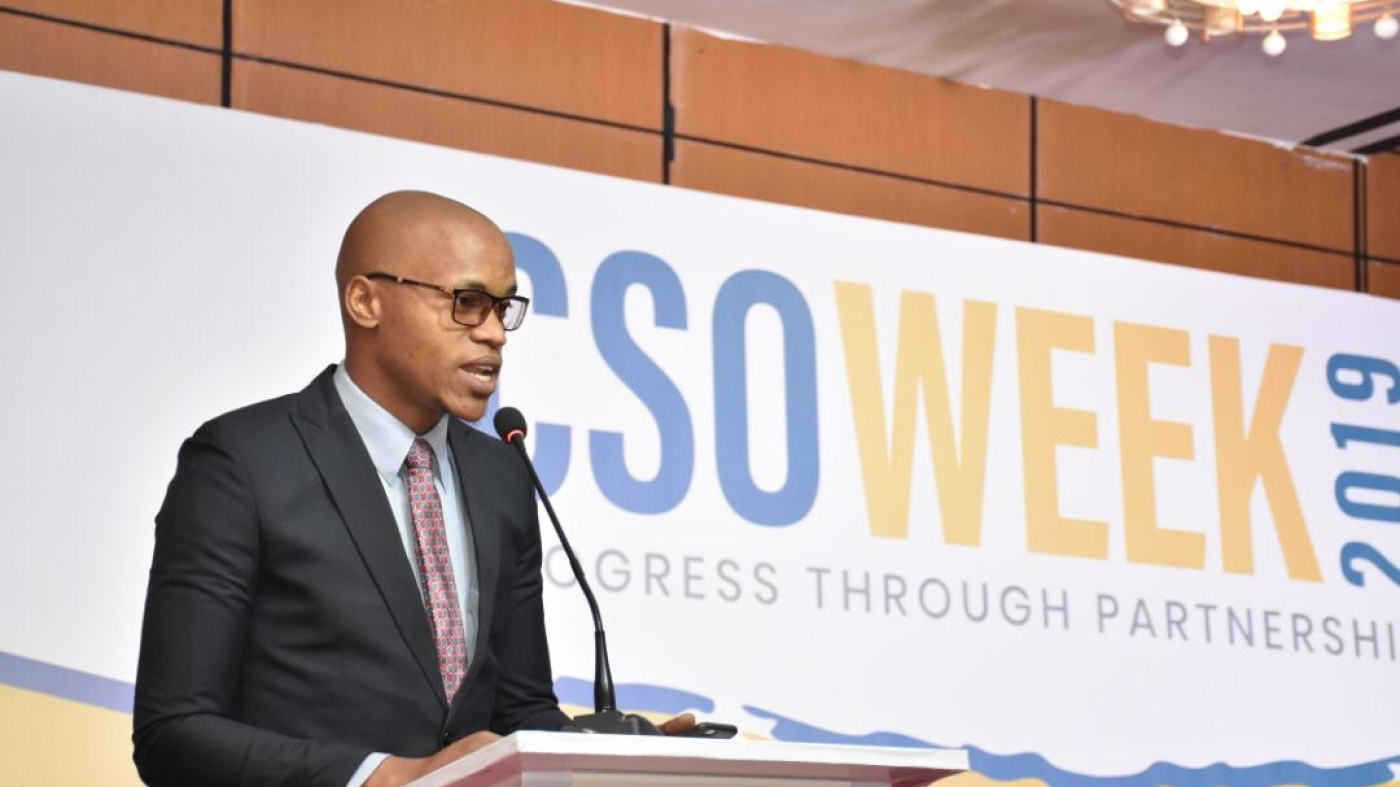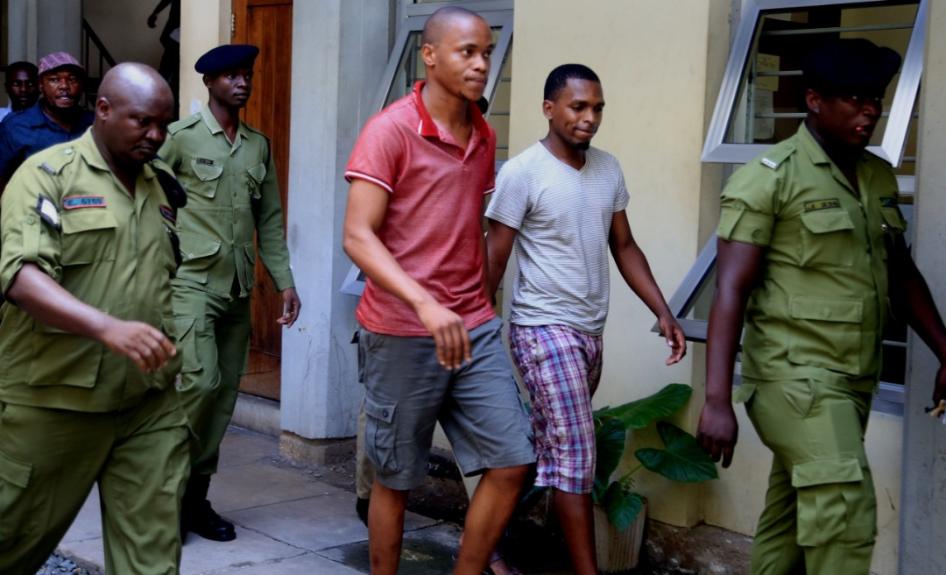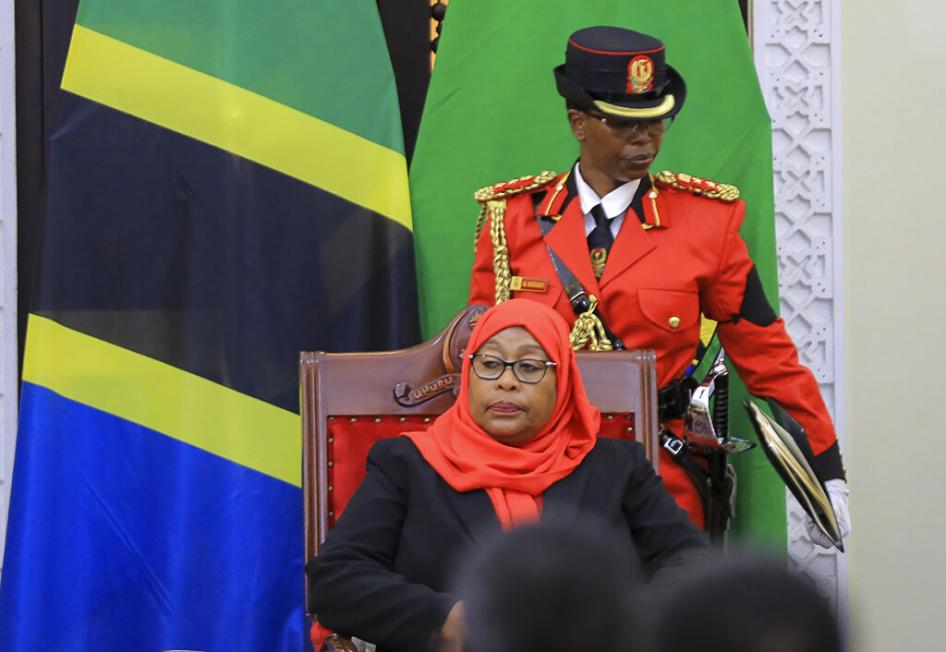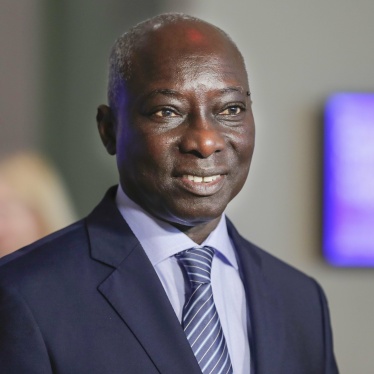Now free and living under a new president – Samia Suluhu Hassan, who took office in March 2021 upon Magufuli’s death – Magoti, 31, continues his human rights work.
Human Rights Watch’s Tanzania researcher, Oryem Nyeko, spoke to Magoti about his views on President Suluhu Hassan’s reforms and what has – and hasn’t – changed in Tanzania since she became president three years ago.
What was your background as a human rights activist before your arrest in 2019?
[In the past] I was very vocal and raised concerns on governance and politics in Tanzania. I followed every speech of every high-profile leader in the country and fact-checked them whenever they talked, analyzed what they said and gave my opinion. Whenever the president talked, I fact-checked what the president said. I appeared on several TV talk shows discussing burning issues.
There was also my work with the [Tanzanian human rights group] Legal and Human Rights Centre. I did research on business and human rights before I became the public affairs officer dealing with human rights education. This gave me an opportunity to teach human rights to journalists, human rights monitors, legal aid providers, and university students.
At that time I was under surveillance. The state planted agents to follow me. Some of those agents used to ask my friends about me, my whereabouts, and personal affairs. They used to follow me while I was in Dodoma [Tanzania’s capital].
I was very active on Twitter. I fearlessly criticized then-President Magufuli and [former Dar es Salaam Regional Commissioner Paul] Makonda who was said to be a close ally of the late president.
What brought you into this world of activism and human rights?
I began taking part in human rights activism in secondary school, especially in Form Four and Five. I remember being targeted because I didn’t agree with certain inhuman treatment given to us by the teachers.
[My activism] intensified when I pursued my law degree. I joined human rights associations and I had the spirit of helping people, especially classmates. We formed an organization to help young people realize their dreams to get educated. We focused on disadvantaged people and people who were in difficult situations, especially orphans. We visited schools and orphanages, offering the little we had to inspire them and to supply them with materials.
At university I was the first secretary general of the human rights association. We had an interesting human rights course facilitator, Dr. Isabela Warioba, and university is where even our facilitators observed something in us: “If you guys can make good human rights activists, you can make good human rights lawyers.” I can trace my spirit of activism to those days.
We last spoke in 2021, a few months after you were released from prison. What have you been up to since then?
I’ve been trying to get back to work. I took time off and went to school to pursue a Masters’ degree, but I kept monitoring the human rights situation in Tanzania. I’m more galvanized than I used to be in terms of my approach: My perspective has been widened in terms of how I define government, governance, and rights.
I studied law, and now I see how the law can be instrumentalized, and how it was instrumentalized against me when I was arrested. Now I stand up and say, “This is supposed to be this way,” especially in areas of criminal justice and democracy. I have the confidence to say certain things because of my experiences in prison, as a defendant in court, and as an advocate representing people in court.
How did your detention shape your approach to activism and human rights work in Tanzania?
Before my arrest I rarely felt like visiting prisons because I didn’t know much about what happened there. But my experience changed that. It taught me about the extent of the demand for help in prison. Sometimes I may be doing something, and my mind reflects, and I hear a voice of a detainee, “Brother, we need you … brother, please visit.” I feel this constant call to visit them, advise them, and to give moral and material support. I’ve tried to represent them in court.
When I was released, I wrote to President Suluhu detailing the flaws in our justice system. I’ve been sharing what I now know about it through social media. I feel like I have that obligation to contribute to build our country.
What was the response to your letter to the president?
The letter itself sparked conversations in Tanzania. There were discussions over mainstream media, social media, and across decision-making institutions in the government. I don’t like to claim credit for certain things, but last year the president commissioned a task force headed by the former chief justice, Mohamed Chande Othman, to look into our criminal justice system. I was consulted, and the commission used my letter as a reference. [On July 15, 2023, the Othman commission submitted its report to President Suluhu recommending various reforms to Tanzania’s police and prison services.]
Even though there’s been an appetite for reforms in the country, we have not been moving because we lack the political will to change the major aspects of our political system – that is, to change the constitution and the bad laws. Instead, we have political pledges from the president and ministers. But the more things change the more they stay the same. We have the same tea in a different cup.
Do you think "non-bailable offenses” are still being used as a tool of repression in Tanzania?
We haven’t recorded as many cases as we used to during the Magufuli era. But we are not supposed to operate at the whims of each regime. If the president chooses to go rough, she still has the tools at her disposal. After all, President Suluhu has used these laws – she jailed [opposition politician] Freeman Mbowe. She tries to make it look like she is undoing Magufuli’s dark legacy, but we still have people in prison for criticizing the government.
Although we have not experienced the massive arraignment of critics like under Magufuli, we’ve seen the state go after everyone that critiqued its dodgy port deal. [In 2023, Tanzania’s government controversially entered into an agreement with a logistics company based in the United Arab Emirates to manage its seaports.] [It was] charging them with the highest offense in the country, treason [which is non-bailable].
I wouldn’t say things have drastically changed. Maybe we are stuck somewhere between President Suluhu saying she is democratic but also struggling to build political bridges and institutions? But how can you reconcile when some of our men and women are still in prison?
The space for human rights defenders and activists in Tanzania deteriorated badly when President Magufuli was president. What needs to be done to create a space for human rights defenders and activists in Tanzania to do their work?
In terms of the criminal justice system, we need to reform the police and other law enforcement agents. They need reform in terms of training, recruitment, and payment.
We need a police oversight body. Whenever a police officer commits a crime, if the government chooses not to prosecute him, there is no way citizens can prosecute him. It is only when the state wants to, that they will prosecute. An oversight body would receive complaints and bring about confidence in the justice system.
We need to see judicial system reforms. The government needs to recruit and remunerate more judicial officers. We have a backlog of cases associated with the budget. There is no adequate budget allocated to the judiciary.
[The government also needs to further] promote the judiciary's independence. Currently the director of public prosecutions (DPP) runs prosecutions in Tanzania – so if the DPP wants the case to procede, it will. If he doesn’t want that, the DPP can withdraw a case from the court without any reason.
The way we practically pursue plea bargaining [when an accused person agrees to plead guilty to an offense in exchange for a lenient sentence or the withdrawal of some charges] in Tanzania creates a lot of questions, in part because that is the only option for people charged with non-bailable offenses to go free. Yes, it is one approach to reducing backlog in the courts, but defendants are left with no option. People are also buying their freedom, and it is one of the ways the state extorts money [in terms of mandatory fees paid by the accused person before they are released from prison].
Local elections are scheduled for this year, and general elections will be held in 2025. Historically, elections in Tanzania have been contentious, especially from a human rights perspective. What needs to be done to ensure that Tanzanians can participate in elections that are not marred by serious human rights abuses?
I’m not a fan of minimal reforms. Constitutional reform is the major goal, so we can guarantee the independence of institutions. Right now, I think we are postponing this bigger project for the benefit of the ruling elite. It is why President Suluhu said she wanted to focus on social and economic rights. To me, this means nothing if the constitution remains the same. [Shortly after coming into power in 2021, President Suluhu announced that, like Magufuli, she would focus on strengthening the country’s economy instead of reviewing the country’s constitution].
I worry about the coming election processes. The electoral commission is appointed by the president. If nothing changes, we will see the same levels of cheating, maladministration, and brutality. The people need to see that justice is being done.
What are the top three human rights issues that you believe President Suluhu should address in the next year?
Accountability. Looting of public resources has not been reported as loudly now as it was during Magufuli’s presidency. But corruption is rampant and there is no accountability.
Rule of law. Especially the rule of good laws. We need to see President Suluhu’s commitment by taking actions to promote accountability. We see selective application of the rule of law. They target human rights lawyers, but at the same time we have big scandals involving public resources, like the port saga.
The last thing is about reforming laws and institutions like the judiciary. We need to build trust in the judiciary. It is the only way for people to express their grievances. If people lose faith in their institutions, we will have a worrying state of lawlessness.
Is anything else you would like to share?
I am crying for the protection of the Maasai, for their security and participation in what happens to their lands. You can’t just relocate people from their ancestral land and then you sell that property to foreign investors. We need justice for the Maasai. [Since 2022, the Tanzanian authorities have forcibly evicted and displaced pastoralist Maasai peoples from their homes in Loliondo division and the Ngorongoro Conservation Area in Ngorongoro district, with little or no consultation with affected communities.]
That applies to all parts of the country rich with natural resources. People have been killed and forced off their land. There are people missing. They need justice.






